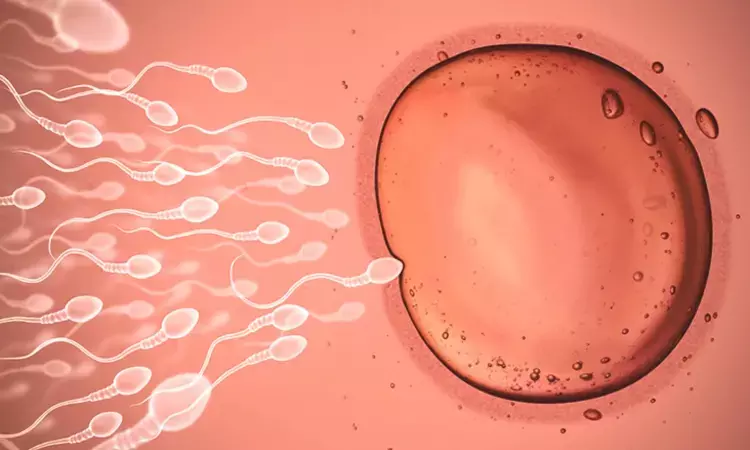- Home
- Medical news & Guidelines
- Anesthesiology
- Cardiology and CTVS
- Critical Care
- Dentistry
- Dermatology
- Diabetes and Endocrinology
- ENT
- Gastroenterology
- Medicine
- Nephrology
- Neurology
- Obstretics-Gynaecology
- Oncology
- Ophthalmology
- Orthopaedics
- Pediatrics-Neonatology
- Psychiatry
- Pulmonology
- Radiology
- Surgery
- Urology
- Laboratory Medicine
- Diet
- Nursing
- Paramedical
- Physiotherapy
- Health news
- Fact Check
- Bone Health Fact Check
- Brain Health Fact Check
- Cancer Related Fact Check
- Child Care Fact Check
- Dental and oral health fact check
- Diabetes and metabolic health fact check
- Diet and Nutrition Fact Check
- Eye and ENT Care Fact Check
- Fitness fact check
- Gut health fact check
- Heart health fact check
- Kidney health fact check
- Medical education fact check
- Men's health fact check
- Respiratory fact check
- Skin and hair care fact check
- Vaccine and Immunization fact check
- Women's health fact check
- AYUSH
- State News
- Andaman and Nicobar Islands
- Andhra Pradesh
- Arunachal Pradesh
- Assam
- Bihar
- Chandigarh
- Chattisgarh
- Dadra and Nagar Haveli
- Daman and Diu
- Delhi
- Goa
- Gujarat
- Haryana
- Himachal Pradesh
- Jammu & Kashmir
- Jharkhand
- Karnataka
- Kerala
- Ladakh
- Lakshadweep
- Madhya Pradesh
- Maharashtra
- Manipur
- Meghalaya
- Mizoram
- Nagaland
- Odisha
- Puducherry
- Punjab
- Rajasthan
- Sikkim
- Tamil Nadu
- Telangana
- Tripura
- Uttar Pradesh
- Uttrakhand
- West Bengal
- Medical Education
- Industry
Pesticides exposure decreased male fertility: Epidemiologic study

A new study published in Andrology shows that DNA fragmentation, semen quality, and chromosome aneuploidy, epidemiological data support a link between pesticide exposure and decreased male fertility in exposed individuals and workers.
Pesticides are one of the most researched environmental hazards. The environment has a significant impact on male infertility, varying the occurrence in different groups. The latter has never stopped being used, endangering both employees and public safety. Carlo Giulioni and his team conducted this analysis in order to summarize the findings of studies examining the relationship between pesticides and male fertility.
A thorough literature search was conducted for this study using MEDLINE via Scopus, PubMed, and Web of Science. Only human research was taken into account. In order to assess the impact of pesticides on men, semen parameters and DNA integrity were taken into account.
The key findings of this study were as follows:
1. There were 64 research studies in total that looked at their effects on semen parameters (51 studies), chromatin and DNA integrity (25 studies), and other factors.
2. Sperm motility, total sperm count, and sperm morphology were the most frequently affected variables, but a decrease in ejaculate volume and concentration happened in a few instances.
3. Organochlorines and organophosphates were linked to a noticeable decline in semen quality.
4. In addition, exposure to pesticides, particularly pyrethroids, was typically linked to greater DNA fragmentation indices and chromosome aneuploidies.
In conclusion, the effects of exposure to pesticides on human semen parameters were summarized in the current study, and it was discovered that there was a negative influence on sperm total count, motility, and normal morphology as well as damage to DNA integrity. Rather than dose, these effects appear to be primarily connected with exposure period. To corroborate these results and to bolster the evidence for causation, future prospective studies with the right approach to adjust for systematic uncertainty are necessary because present knowledge almost exclusively relies on cross-sectional evaluations.
Reference:
Giulioni, C., Maurizi, V., Castellani, D., Scarcella, S., Skrami, E., Balercia, G., & Galosi, A. B. (2022). The environmental and occupational influence of pesticides on male fertility: A systematic review of human studies. In Andrology. Wiley. https://doi.org/10.1111/andr.13228
Neuroscience Masters graduate
Jacinthlyn Sylvia, a Neuroscience Master's graduate from Chennai has worked extensively in deciphering the neurobiology of cognition and motor control in aging. She also has spread-out exposure to Neurosurgery from her Bachelor’s. She is currently involved in active Neuro-Oncology research. She is an upcoming neuroscientist with a fiery passion for writing. Her news cover at Medical Dialogues feature recent discoveries and updates from the healthcare and biomedical research fields. She can be reached at editorial@medicaldialogues.in
Dr Kamal Kant Kohli-MBBS, DTCD- a chest specialist with more than 30 years of practice and a flair for writing clinical articles, Dr Kamal Kant Kohli joined Medical Dialogues as a Chief Editor of Medical News. Besides writing articles, as an editor, he proofreads and verifies all the medical content published on Medical Dialogues including those coming from journals, studies,medical conferences,guidelines etc. Email: drkohli@medicaldialogues.in. Contact no. 011-43720751


